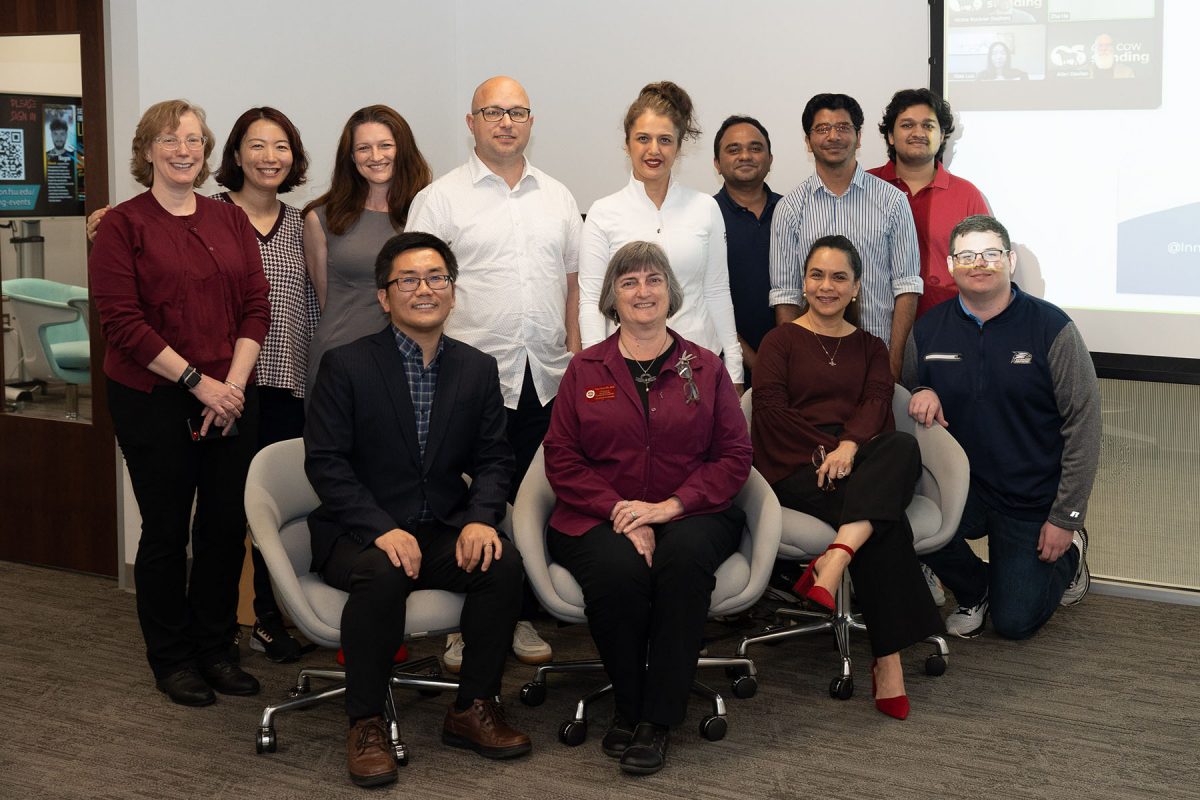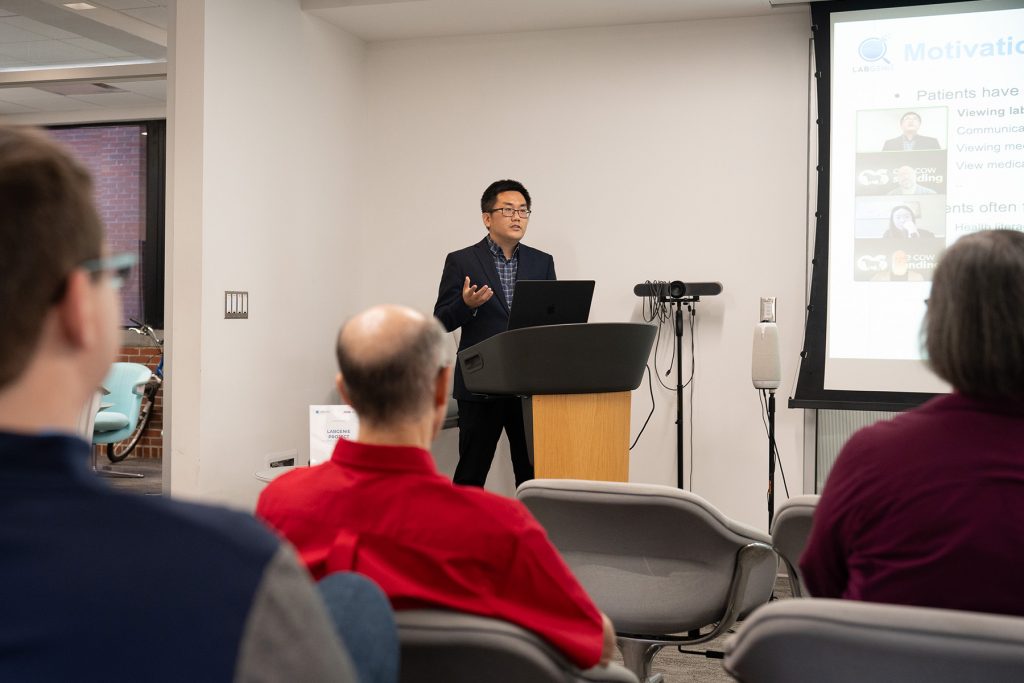
A team of researchers at Florida State University has received a $1 million grant to develop a tool to help older patients better understand the results of medical lab health tests.
“LabGenie” will use artificial intelligence to provide contextualized information about lab test results and to generate questions patients can use to discuss their results with their doctors.
Led by two researchers from the College of Communication and Information’s School of Information — Associate Professor Zhe He and Professor Mia Lustria — the interdisciplinary team includes experts in computational sciences, electronic health (eHealth) and mobile health (mHealth), human-computer interaction (HCI), large language models, geriatric medicine and implementation science.
“I am beyond pleased that Dr. He and Dr. Lustria are leading this interdisciplinary research that has been supported by the Agency for Healthcare Research and Quality,” said Michelle Kazmer, dean of the College of Communication and Information. “This generous funding will allow the important research being conducted as part of the LabGenie project to have a substantially increased impact on patient involvement in health care decisions and how health care can be improved through information and communication technology incorporating AI. The College of Communication and Information is fortunate to have researchers such as Dr. He and Dr. Lustria on our faculty.”
The project, funded by U.S. Department of Health and Human Services’ Agency for Healthcare Research and Quality (AHRQ), is a multi-disciplinary, multi-institutional collaboration that aims to improve patients’ ability to understand their test results and participate in shared decision-making with their doctors.
“We believe this project can be a demonstration project for FSU-TMH research collaboration which has been significantly pushed by the planned FSU Health Tallahassee Center funded by a $125 million appropriation from the Florida Legislature.”
– Dr. Dean Watson, vice president and chief integration officer at Tallahassee Memorial HealthCare
He, Lustria and the research team are excited about the practical applications of the project, particularly for vulnerable and at-risk populations like older adults with multiple chronic conditions.
“We want to be able to empower older adult patients to be able to better understand their test results and participate in more informed decision-making surrounding their health,” said Lustria.
According to He, “The project addresses a critical need for better patient engagement by building a patient-facing decision aid that will provide informative visual representations of lab results and tailored question prompts for patients to discuss with their providers.”
The project will take place in two phases. The first will focus on designing and developing a prototype of LabGenie. This will involve evaluating different ways to visualize lab test results and testing how to use generative AI and large language models to create tailored information and question prompts for patients.
The goal is to have a functional prototype that can pull medical data directly from an electronic medical records system which can then be used to provide more contextualized insights about a patient’s lab test results.
“We want to test what works and what doesn’t work for older adult populations in terms of visualizing and presenting lab test results more effectively,” Lustria said. “We also want to provide patients with more actionable insights about their lab test results by linking them with other personal health information in their electronic health record.”

The second phase will evaluate the effectiveness of the tool in improving patient engagement and behavioral intentions to participate in shared decision-making. To do this, the team will conduct a randomized control trial and a mixed-method study to evaluate the tool with about 100 older adult patients in Florida.
As a partner of this grant, Tallahassee Memorial HealthCare’s Vice President and Chief Integration Officer Dr. Dean Watson is looking forward to the collaboration.
“We believe this project can be a demonstration project for FSU-TMH research collaboration which has been significantly pushed by the planned FSU Health Tallahassee Center funded by a $125 million appropriation from the Florida Legislature,” Watson said.
Other team members include:
Zhan Zhang, associate professor at Pace University (co-investigator); Xiao Luo, associate professor at Oklahoma State University (co-investigator); Michael Killian, associate professor at FSU College of Social Work (co-investigator/biostatistician); Henna Budhwani, professor at FSU College of Nursing (co-investigator/implementation scientist); Balu Bhasuran, postdoctoral scholar (data scientist); Dhruv Kale (application developer); Xiaoyu Wang (research assistant); Yashas Nagesh Gowda (research assistant); Dr. Lisa Granville, professor of geriatrics and interim chair of the Department of Geriatrics at FSU’s College of Medicine (consultant); Neil Charness, professor of psychology and director of the Institute for Successful Longevity (advisory panel); Jing Wang, dean and professor at FSU’s College of Nursing (advisory panel); and Dawn Carr, professor at FSU’s College of Social Sciences and Public Policy (advisory panel).
For more information, visit isl.fsu.edu and sites.google.com/view/labgeniefsu.



